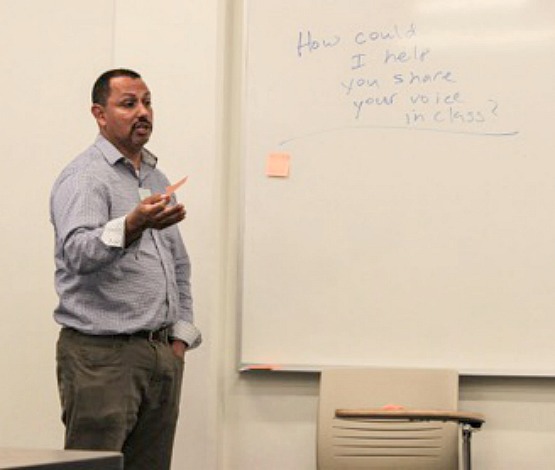Last quarter, I took an education course at the University of California, Riverside. I was inspired by the work of three key educators.
The first is Paulo Freire, and he believed that students should be looked to as human beings. Freire wrote, “You need to love. You must be convinced that the fundamental effort of education is to help with the liberation of people, never their domestication. You must be convinced that when people reflect on their domination they begin a first step in changing their relationship to the world.”
This ideology puts people’s humanity first, which is what I believe the sole purpose of K-12 education should be. Educators should aim to help students identify who they are and it should also liberate students to become critical thinkers. Of all the things Freire believes, “teaching as an act of love” is a revolutionary idea as it is so important in building much needed connections with students. To learn more about Freire, check out Education is Politics: Paulo Freire’s Critical Pedagogy by Ira Shor.
The second revolutionary educator whose work resonated with me is Tara J. Yosso. Yosso wrote about two ideologies: critical race theory and community cultural wealth. Critical race theory is often referenced in the social sciences as an intersection between power, law and race in society. She uses critical race theory to break down the way that students of color are not benefiting from the current educational system because of the white supremacy that exists within the system. She also highlights the positive experiences students of color have when community cultural wealth is implemented. There are six capitals to community cultural wealth: aspirational, familial, social, linguistic, resistant, navigational and cultural. All of these emphasize an ideology that students come with knowledge and advantages, which increase student success. To learn more about Yosso, check out Whose culture has capital? A critical race theory discussion of community cultural wealth by Tara J. Yosso.
Third, Henry Giroux writes about the need to have teachers recognized as “transformative intellectuals” and schools as “economic, cultural and social sites that are inextricably tied to the issue of power and control. Schools serve to introduce and legitimize particular forms of social life.” I agree that schools should provide this knowledge for students so they’re consciously aware of what’s going on in their city, county, state, nation and globally. To understand where Giroux is coming from, I suggest reading Critical Pedagogy: Teachers as Transformative Intellectuals By Henry Giroux
Ultimately, I believe that K-12 school districts need to move past a routine of a simplistic curriculum that doesn’t prepare students to be critical thinkers or entrepreneurs. It is necessary for schools to reevaluate their methods of instruction and curriculum, so that students feel connected to what they learn and that teachers are empowered to help students discover and understand their identities before they get to college.
Rocio Aguayo
Latest posts by Rocio Aguayo (see all)
- Perspectivas desde Inland Empire: Como los Ingresos Afectan los Resultados de Aprendizaje en los Estudiantes - January 31, 2019
- Perspectives from the Inland Empire: How Income Impacts Student Learning Outcomes - January 30, 2019
- Luchadora Alex Beltran esta en un Empate Con el Titular de San Bernardino en el Consejo Municipal - December 4, 2018
- Luchadora Alex Beltran is Neck and Neck with San Bernardino Incumbent in City Council Race - December 4, 2018
- Los Jóvenes Pueden Hacer Una Diferencia en Esta elección, Incluso si son Demasiado Jóvenes para Votar - November 6, 2018

